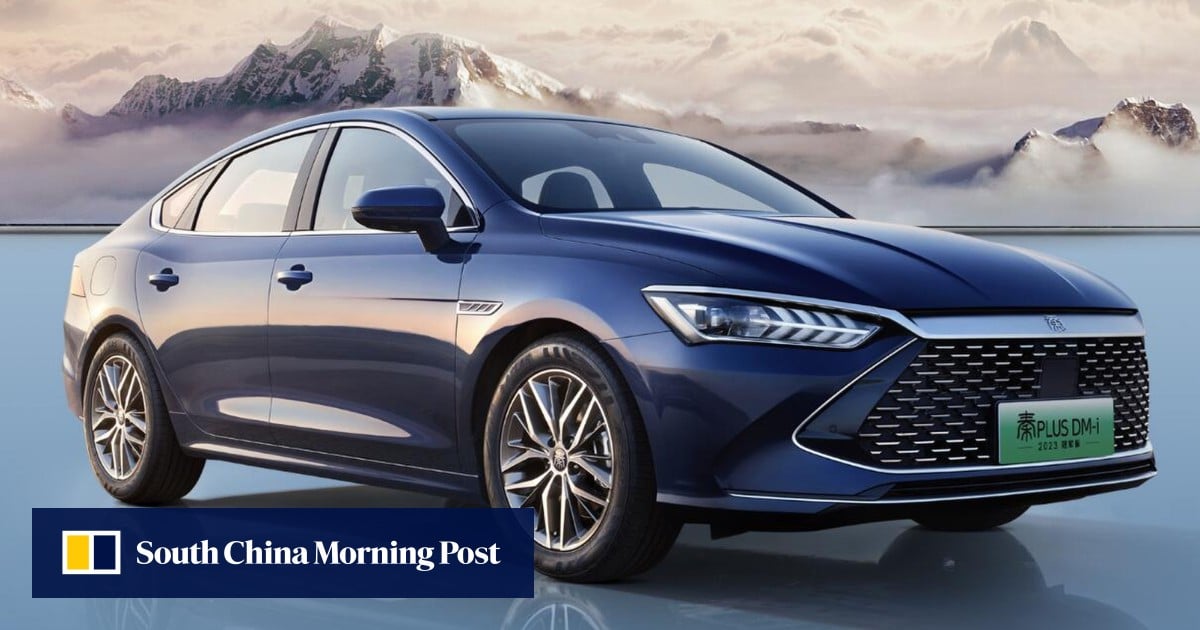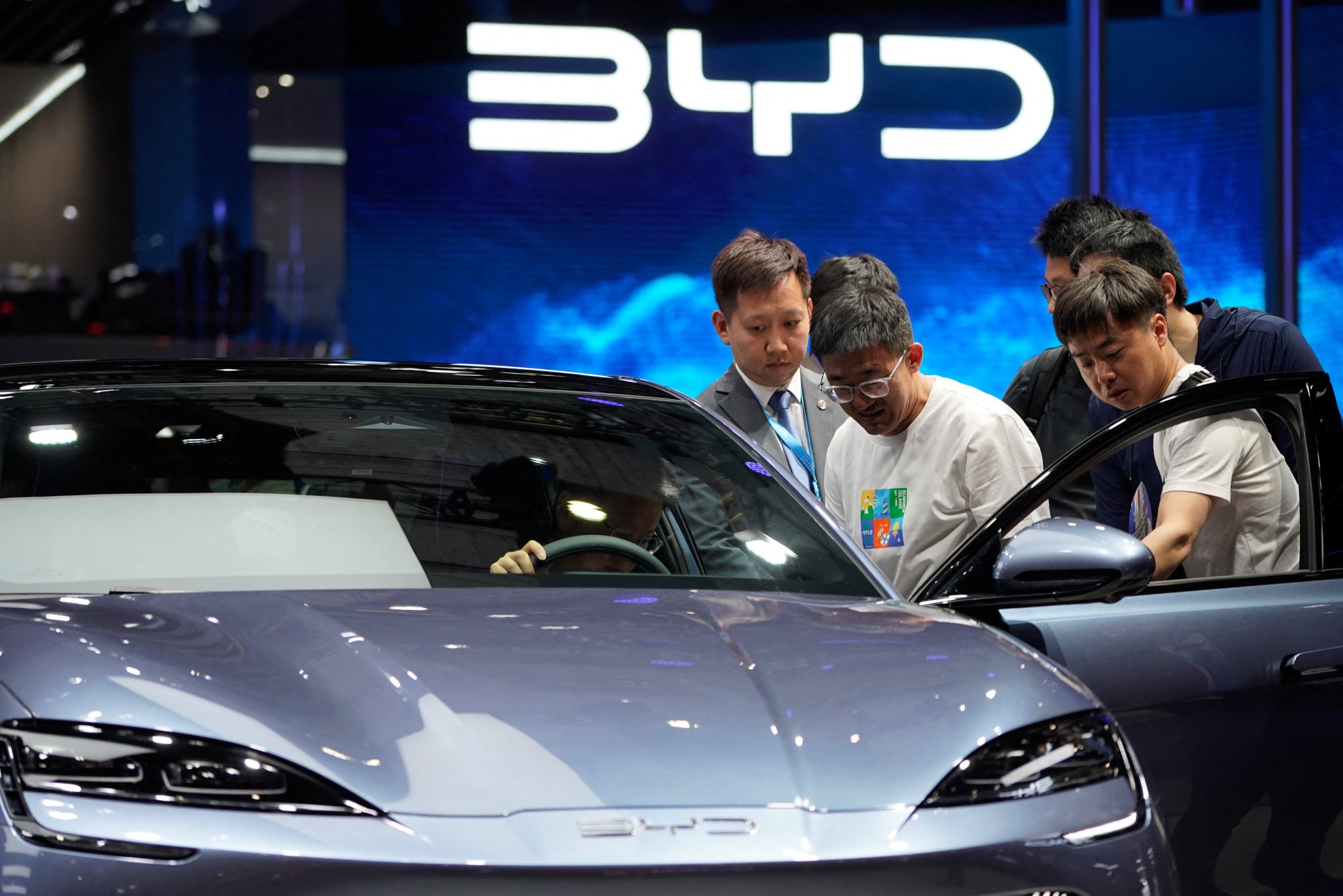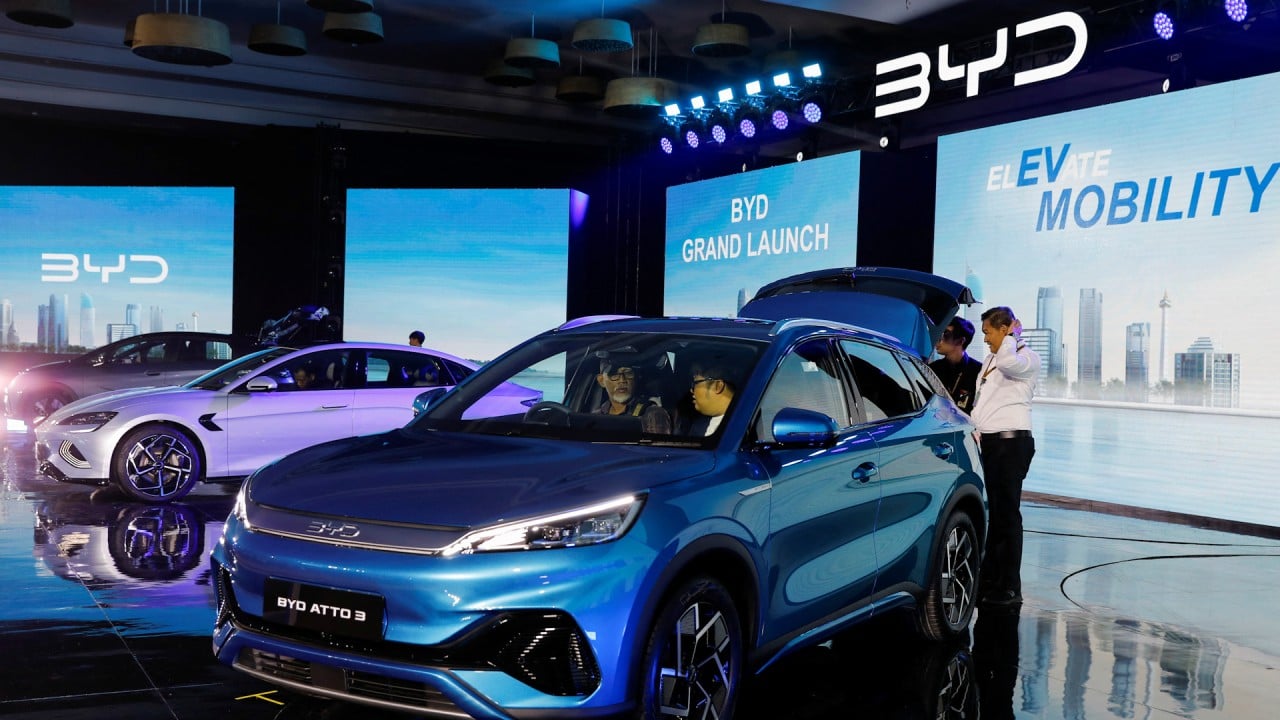
19 Feb China’s BYD launches cheaper plug-in hybrid EV to lure customers away from petrol-powered rivals by Volkswagen, Toyota
The company, backed by Warren Buffett’s Berkshire Hathaway, said on Monday that the new variant, known as the Glory Edition, aims to accelerate customers’ conversion from fossil fuel-powered vehicles to EVs amid a slowing economy.
The new version starts at 79,800 yuan (US$11,086), lower than the previous edition by 20,000 yuan or 20 per cent. Its battery-only driving range is 55 kilometres.
“The price will make petrol car assemblers tremble,” BYD said in a statement on the microblogging site Weibo. “The Glory Edition will become a benchmark for the Class-A [compact] car segment.”

In China, where two out of every five new cars taking to the streets are powered by batteries, thousands of young, budget-conscious drivers are looking to buy low-priced EVs due to worries about job prospects and wages.
The new edition is 15 per cent cheaper than the entry-level Lavida and nearly 40 per cent less than the basic Corolla.
It also undercuts other hybrid models like Toyota’s Prius, which sells for 179,800 yuan in its base edition, more than double the price of the Glory Edition.
BYD, the top beneficiary of an accelerated pace of electrification on mainland China’s roads, has been ramping up efforts to make its mass-market EVs more affordable to Chinese consumers.
The basic edition of the Seagull, which can go as far as 305km on a single charge, takes on a number of low-priced petrol-based cars such as the Toyota Yaris, which starts at 85,800 yuan in China.
EU climate demands set to erode Chinese EV makers’ export edge: expert
EU climate demands set to erode Chinese EV makers’ export edge: expert
The company’s blade lithium iron phosphate battery packs have proved popular with Chinese drivers and carmakers. The battery cells are arranged in a manner that increases energy density while enhancing resistance to overheating.
In 2023, the company handed 3.02 million pure electric and plug-in hybrid vehicles to customers at home and abroad, up by 62.3 per cent from the previous year.
“Chinese consumers now favour low-priced EVs amid a bearish economic outlook,” said Eric Han, a senior manager at Suolei, an advisory firm in Shanghai. “BYD has the design and manufacturing heft to churn out value-for-money electric cars to cater to those budget-sensitive customers.”
On Sunday, the carmaker controlled by Chinese billionaire Wang Chuanfu said in an action plan filed with the Hong Kong stock exchange that it will launch a number of premium and luxury models this year.

